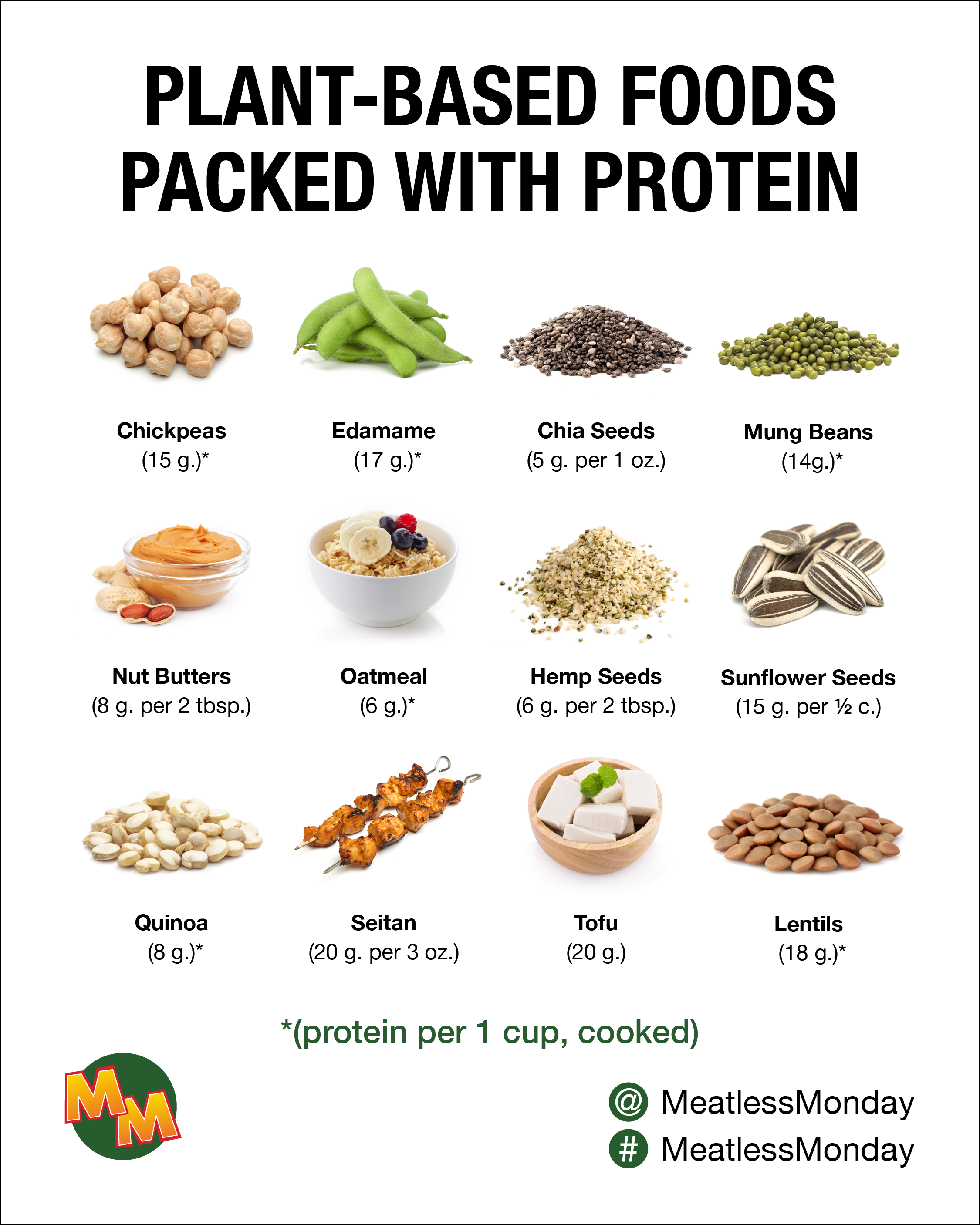Best Brands for Gluten Free BBQ Sauce in Houston
Best Brands for Gluten Free BBQ Sauce in Houston
Blog Article
All About Healthy And Balanced Food: Benefits of Embracing Plant Based Options
The discussion surrounding plant-based diet plans has actually obtained substantial interest over the last few years. Many people are discovering the prospective health and wellness advantages, nutritional advantages, and ecological influences related to these dietary options. As people come to be extra knowledgeable about their food's impact on wellness and sustainability, questions arise about the usefulness of taking on such a way of life. What particular modifications can one expect, and just how might these options improve not only individual health and wellness but likewise the world's future?
Comprehending Plant-Based Diets
Although many individuals connect plant-based diet plans generally with vegetarianism or veganism, these diet regimens can include a variety of consuming patterns that prioritize entire, minimally refined plant foods. Such diet plans frequently include fruits, veggies, whole grains, vegetables, seeds, and nuts, while limiting or removing animal products. This adaptability allows individuals to customize their nutritional choices according to individual choices and nutritional demands. Some may embrace a primarily plant-based diet plan while still sometimes consuming meat or dairy, commonly referred to as a flexitarian method. The focus continues to be on incorporating more plant foods, which can cause a diverse selection of flavors and dishes. Understanding these different analyses of plant-based consuming is important for valuing its accessibility and allure in contemporary food culture.
Health And Wellness Perks of Plant-Based Foods
The health advantages of plant-based foods are significant, offering a nutrient thickness benefit that sustains total well-being. Research study shows that these foods can boost heart health and wellness and play an essential duty in efficient weight administration. By incorporating more plant-based options, people might improve their dietary choices and promote lasting health.
Nutrient Density Benefit
Nutrient thickness plays a vital function in the wellness benefits of plant-based foods, making them a compelling choice for those looking for a well balanced diet. Plant-based foods, such as fruits, veggies, legumes, nuts, and entire grains, are usually abundant in crucial vitamins, minerals, and anti-oxidants while being lower in calories. This high nutrient density permits people to consume less calories while still satisfying their dietary requirements. In addition, these foods are loaded with dietary fiber, promoting gastrointestinal health and helping in weight management. By integrating nutrient-dense plant-based options, customers can boost their total wellness, support their body immune systems, and decrease the risk of persistent diseases. Ultimately, the nutrient thickness of plant-based foods emphasizes their significance in a health-conscious lifestyle.
Heart Health Improvement

Weight Administration Support
Along with advertising heart health, a plant-based diet regimen can significantly aid in weight administration. This nutritional strategy stresses whole foods such as fruits, veggies, beans, nuts, and whole grains, which are generally reduced in calories and higher in fiber contrasted to animal-based products. The high fiber web content assists increase satiation, decreasing total calorie intake. Plant-based diets are typically rich in necessary nutrients while reduced in harmful fats, making it simpler to maintain a healthy and balanced weight. Study indicates that people who embrace a plant-based way of living tend to have lower body mass indexes (BMIs) and experience even more effective weight management contrasted to those who eat meat-heavy diet plans. Welcoming plant-based options is a tactical choice for efficient weight administration.
Nutritional Worth of Plant-Based Active Ingredients
Plant-based ingredients are rich in necessary nutrients, supplying a diverse array of vitamins, minerals, and anti-oxidants that add to overall health. A comparison of protein resources discloses that while pet items are often deemed exceptional, several plant-based options offer appropriate protein and other helpful substances. Comprehending the dietary value of these ingredients can help individuals make informed dietary options.
Essential Nutrients in Plants
Nutrient-rich ingredients found in plants use a varied variety of necessary nutrients that contribute greatly to overall wellness. These active ingredients are rich in vitamins A, C, and K, which sustain immune feature, vision, and blood clotting, respectively. On top of that, plants give important minerals such as calcium, potassium, and magnesium, vital for heart health and wellness, muscle feature, and bone strength. The visibility of fiber in plant-based foods help food digestion and promotes a healthy and balanced digestive tract microbiome. Anti-oxidants, discovered abundantly in fruits and veggies, assistance battle oxidative stress and lower inflammation. Lots of plant foods are low in calories yet high in nutrients, making them an outstanding choice for those looking for to maintain a healthy weight while making certain optimal nutrient consumption.

Contrasting Healthy Protein Sources
Protein sources vary significantly in their nutritional accounts, with plant-based active ingredients providing special advantages. Unlike animal healthy proteins, which usually include saturated fats and cholesterol, plant proteins tend to be reduced in these undesirable parts. Legumes, nuts, seeds, and entire grains are rich in vital amino acids, fiber, vitamins, and minerals. For example, lentils provide high protein content alongside substantial iron and folate, while quinoa is a total protein, offering all 9 crucial amino acids. In addition, plant-based proteins are frequently accompanied by anti-oxidants and phytochemicals that support total health and wellness. The shift to plant-based healthy protein resources not only boosts dietary consumption but also straightens with sustainable dietary practices, lowering environmental influence and promoting long-lasting health advantages.
Environmental Effect of Plant-Based Consuming
As understanding of climate modification expands, numerous people are checking out sustainable dietary options that can greatly minimize their ecological footprint. Plant-based eating has actually become a considerable contributor to minimizing greenhouse gas emissions, which are mostly associated with livestock production. The growing of fruits, veggies, grains, and legumes normally requires fewer resources, such as water and land, contrasted to pet farming. Additionally, plant-based diets can result in lowered deforestation, as less land is needed for this link grazing livestock or growing pet feed. By changing towards plant-based choices, consumers can support biodiversity and advertise much healthier ecosystems. In general, accepting plant-based eating not only advantages individual wellness but also represents an important step toward environmental sustainability and conservation efforts.
Overcoming Common Misconceptions
While numerous individuals acknowledge the benefits of a plant-based diet, a number of misconceptions typically discourage them from completely embracing this way of living. An usual idea is that plant-based diet plans lack sufficient protein; however, various plant resources, such as beans, nuts, and tofu, give enough healthy protein. Furthermore, some presume that this diet is expensive, when as a matter of fact, staples like beans, rice, and seasonal vegetables can be quite economical. Another misconception is that plant-based eating is overly limiting, whereas it really provides a varied selection of foods and tastes. Numerous stress that a plant-based diet plan may lead to shortages, yet with appropriate preparation, individuals can acquire all essential nutrients, consisting of vitamins and minerals, while enjoying a large variety of scrumptious meals. Vast Tips for Transitioning to a Plant-Based Way of life
Making the change to a plant-based lifestyle can be an enriching experience, though it frequently calls for some assistance to browse the initial changes. Individuals are motivated to start progressively, incorporating more check this site out fruits, veggies, beans, and entire grains into their meals while minimizing meat and dairy consumption. Meal planning is crucial; preparing a regular menu can assist relieve the adjustment and avoid last-minute undesirable selections. Discovering cooking approaches and brand-new dishes can likewise preserve and enhance the experience excitement regarding plant-based consuming. In addition, signing up with assistance teams or areas can provide motivation and share valuable pointers. Finally, staying informed about nutrition warranties balanced meals, stopping shortages while cultivating a healthy, rewarding plant-based way of life.
Delicious Plant-Based Dish Ideas
Discovering delicious plant-based meal ideas can influence people to welcome a more healthy diet plan. One prominent alternative is a hearty quinoa salad, including cherry tomatoes, cucumber, and a vibrant lemon-tahini clothing. Another fave is a full-flavored lentil stew, packed with carrots, celery, and aromatic natural herbs, best for a calming supper. For breakfast, overnight oats made with almond milk, chia seeds, and topped with fresh berries supply a healthy begin to the day. In addition, a vibrant vegetable stir-fry with tofu and a selection of colorful veggies can be a quick yet satisfying meal. Creamy avocado toast on whole-grain bread, sprinkled with seasonings and seeds, provides a straightforward yet flavorful snack. These meals showcase the variety and richness of plant-based eating.

Frequently Asked Questions
Can a Plant-Based Diet Regimen Supply Enough Healthy Protein?
The concern of whether a plant-based diet plan can supply sufficient healthy protein is typical. Numerous resources, including legumes, nuts, seeds, and entire grains, can meet healthy protein needs effectively, sustaining a balanced and nutritious diet plan for individuals.
Are Plant-Based Diets Ideal for Children?
The viability of plant-based diets for kids depends upon careful preparation. Adequate nutrients need to be guaranteed, consisting of vitamins, minerals, and proteins. With correct support, such diet regimens can support healthy and balanced development and advancement in children.
Exactly how Do I Eat Out on a Plant-Based Diet?
Eating in restaurants on a plant-based diet regimen includes looking for restaurants with diverse food selections, requesting for modifications, and discovering vegan-friendly options. Planning in advance and connecting dietary choices can enhance the dining experience while preserving nutritional selections.
What Are Typical Irritants in Plant-Based Foods?
Usual allergens in plant-based foods include soy, gluten, nuts, and seeds - BBQ Sauces. People complying with a plant-based diet regimen needs to understand these allergens and check out tags meticulously to prevent unfavorable responses and assure risk-free intake
Can Plant-Based Diets Aid With Weight Management?
Study shows that embracing a plant-based diet may help with weight management as a result of its generally lower calorie density and higher fiber material. This combination can enhance satiety, assisting individuals manage their caloric intake efficiently. Lots of individuals connect plant-based diet plans primarily with vegetarianism or veganism, these diets can include a broad variety of eating patterns that prioritize entire, minimally processed plant foods. Nutrient thickness plays an important function in the health and wellness benefits of plant-based foods, making them a compelling option for those seeking a balanced diet regimen. Plant-based diet regimens have been revealed to noticeably enhance heart health and wellness, as they typically include elements that support cardiovascular function. In enhancement to promoting heart health, a plant-based diet regimen can considerably aid in weight administration. A common idea is that plant-based diet plans lack adequate protein; nonetheless, various plant sources, such as beans, nuts, this and tofu, supply adequate protein.
Report this page